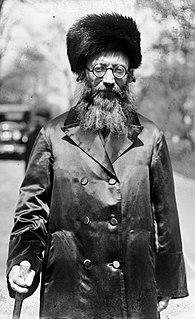A Quote by Francois de La Rochefoucauld
If we did not have pride, we would not complain of it in others.
Related Quotes
Ah, did we but rightly understand what the demerit of sin is, we would rather admire the bounty of God than complain of the straithandedness of Providence. And if we did but consider that there lies upon God no obligation of justice or gratitud to reward any of our duties, it would cure our murmurs (Gen. 32:10).
There is a diabolical trio existing in the natural man, implacable, inextinguishable, co-operative and consentaneous, pride, envy, and hate; pride that makes us fancy we deserve all the goods that others possess; envy that some should be admired while we are overlooked; and hate, because all that is bestowed on others, diminishes the sum we think due to ourselves.
Pride... is a very common failing, I believe. By all that I have ever read, I am convinced that it is very common indeed; that human nature is particularly prone to it, and that there are very few of us who do not cherish a feeling of self-complacency on the score of some quality or the other, real or imaginary. Vanity and pride are different things, though the words are often used synonymously. A person may be proud without being vain. Pride relates more to our opinion of ourselves, vanity to what we would have others think of us.
I wouldn't mind removing all the mistakes I have made. That would be exhausting and take forever. Honestly, it's one of the spells of my life that has been the most perfect. Not because I did the job perfectly, because of course I did it very imperfectly, but because I enjoyed it so much. What would I change? I complain a lot. I whinge, I more or less communicate in levels of complaint so I wish sometimes I didn't just spend all my time saying, 'I'm working so hard, what do I get in return for this?'.
Pride is a mental factor causing us to feel higher or superior to others. Even our study of dharma can be the occasion for the delusion of pride to arise if we think our understanding is superior to that of everyone else. Pride is harmful because it prevents us from accepting fresh knowledge from a qualified teacher. Just as a pool of water cannot collect on the tip of a mountain, so too a reservoir of understanding cannot be established in a mind falsely elevated by pride.
Let others lead small lives, but not you. Let others argue over small things, let them complain over what might have been, but not you. Let others cry over small hurts, let them be discouraged, let them be revengeful and vindictive, but not you. Let others leave their future in someone else's hands, let them become materialistic and empty, but not you. Let others become ungrateful and stop praying, but not you! Let others give up, but not you! For you know in whom you believe and you know that He is always able. Now, that's you!


































